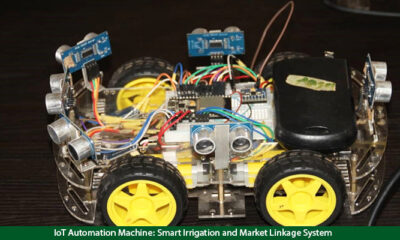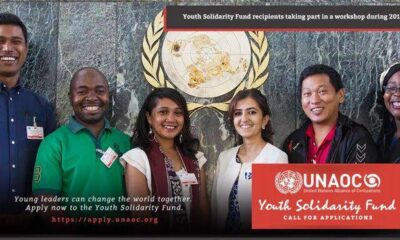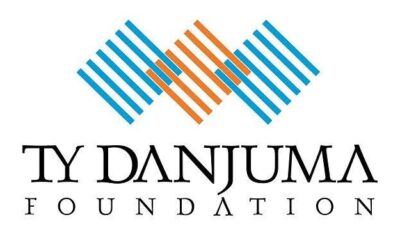NEWS
Ebonyi stakeholders unite to end child marriage, domestic servitude
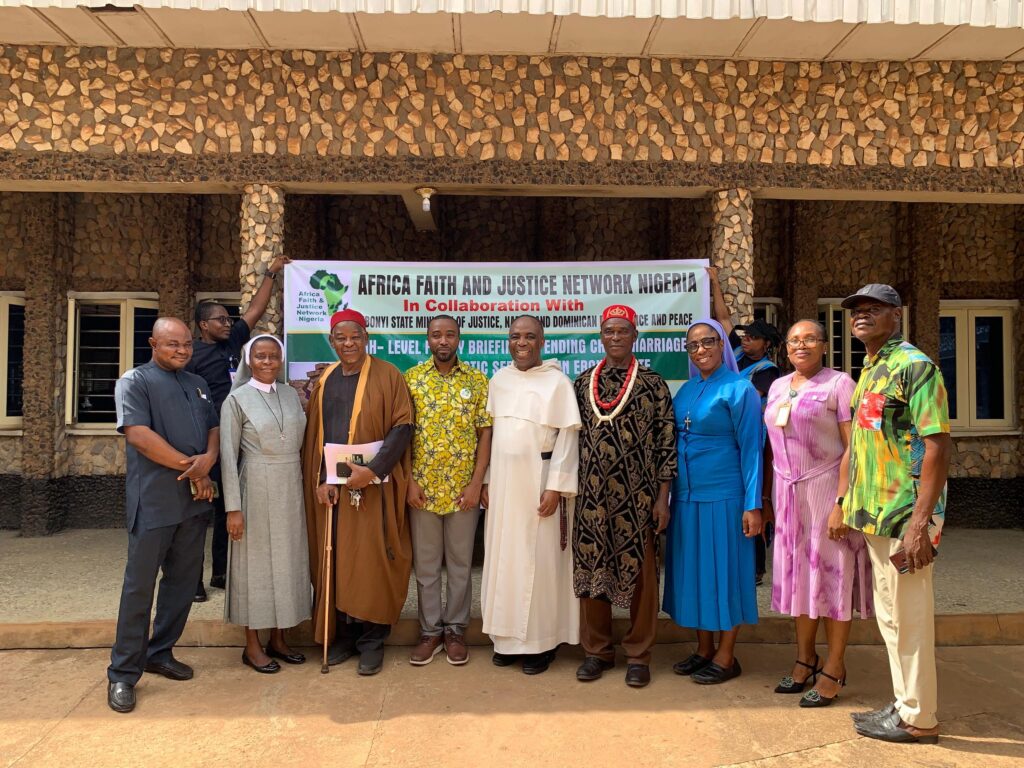
A coalition of traditional rulers, religious leaders, policymakers, and civil society actors in Ebonyi State has pledged coordinated action to end child marriage and domestic servitude.
The commitment was made on Thursday in Abakaliki during a high-level policy briefing and consultative forum convened by the African Faith and Justice Network (AFJN) Nigeria, in partnership with the Ebonyi State Ministry of Justice and the National Agency for the Prohibition of Trafficking in Persons (NAPTIP).
The forum brought together senior government officials, youth advocates, traditional institutions, survivors, and faith-based organisations to evaluate existing interventions and introduce new tools to protect children from exploitation.
The participating institutions included the Ebonyi State Traditional Rulers Council, the Christian Association of Nigeria (Ebonyi State chapter), Youth Advocate Networks, the Ministry of Education and Social Welfare, and the Ministry of Women Affairs and Child Development, among others.
In his opening remarks, Paulinus Nwanchor, Special Assistant to the Governor on Community Engagement, reaffirmed the state’s resolve to protect vulnerable children.
“When a community rises to protect its children, it builds a future where justice, not exploitation, becomes the legacy,” Mr Nwanchor said. “Today’s gathering is a testament that Ebonyi is rising.”
The AFJN presented a situational report highlighting persistently high rates of child, early and forced marriage (CEFM) and domestic servitude in the state—driven largely by poverty, entrenched gender norms, and inadequate enforcement of child protection laws.
One of the most emotional moments of the day came when Amaka, a survivor of domestic servitude, shared her story of forced labour and years of isolation.
“I was silenced by servitude for years, but today, I have found my voice. No child should ever be invisible,” she said, prompting a standing ovation.
The policy forum was built on momentum from a January 2024 stakeholders’ workshop hosted by AFJN and Dominicans for Justice and Peace Nigeria and Ghana at the Bishop Thomas McGettrick Pastoral Centre, Abakaliki.
That workshop also featured religious sisters, traditional rulers, and officials from the ministries of Women Affairs, Justice, and Health, as well as members of the Child Protection Network.
Participants at that meeting committed to grassroots sensitisation, the formation of community monitoring committees, and stronger oversight of child migration for domestic work—practices that often end in servitude.
Some traditional leaders pledged to track the movement of children from their communities and verify the claims made by those seeking to employ them.
“Most parents are unaware of where their children are taken, or what happens to them afterward. This gesture by traditional rulers is a welcome shift,” one facilitator said.
Despite national legislation such as the Child Rights Act of 2003, child marriage remains prevalent across Nigeria. According to Human Rights Watch, weak enforcement and legal inconsistencies—such as Section 29(4)(b) of the Nigerian Constitution—undermine protections for girls.
Only 25 out of Nigeria’s 36 states have domesticated the Act. In many Sharia-governed states in the north, child marriage is still permitted under customary and religious laws. In contrast, even some southern states that have adopted the Act are failing to implement it effectively.
“It is disturbing that almost two decades after the Child Rights Act was passed, Nigerian girls are still being forced into child marriages,” said Mausi Segun, Africa Director at Human Rights Watch.
The 2020 UN Development Report found that 43 percent of Nigerian women aged 20–24 were married before the age of 18—one of the highest rates in Africa. The consequences are severe: girls are often pulled out of school, denied healthcare, and subjected to violence and economic dependency.
Calls for urgent legal harmonisation and stronger community accountability continue to grow. Stakeholders in Ebonyi say their recent efforts are just the beginning of a broader campaign to protect Nigeria’s children from harmful traditional practices.
Strategic interventions unveiled
Two major strategies were launched at the event, including a Community Monitoring System (CMS) as a grassroots mechanism to detect and prevent cases of child exploitation.
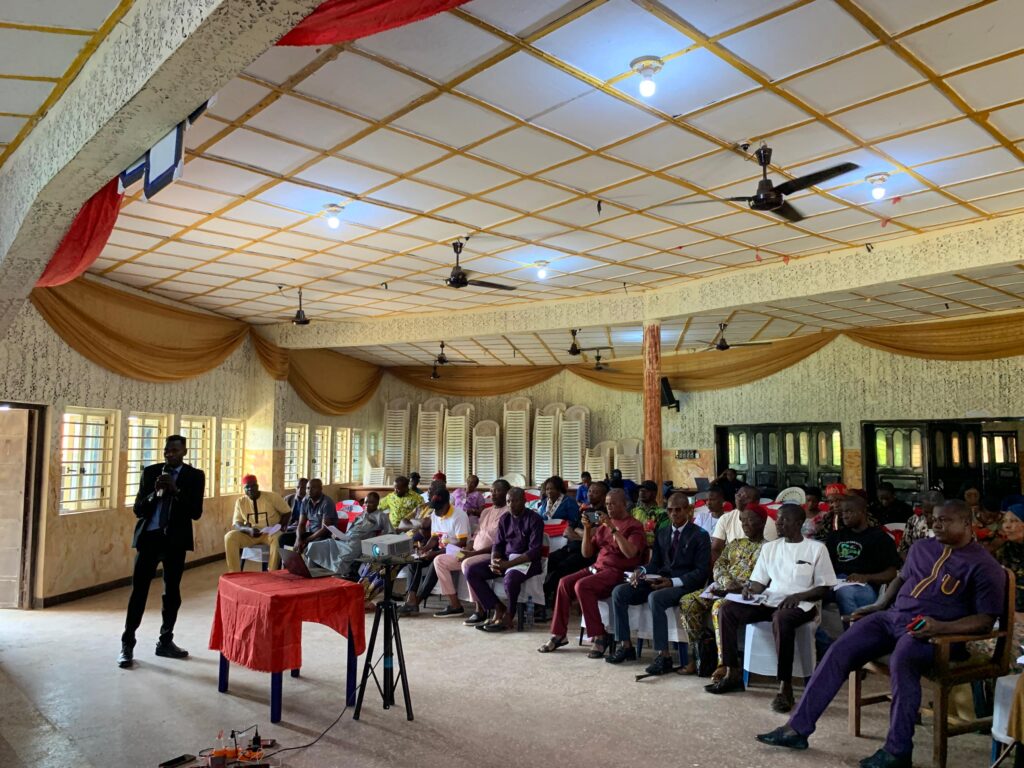
Also, a Memorandum of Understanding (MoU) was signed as a framework to hold guardians and community leaders accountable for child protection.
The panel
Key discussions during the panel focused on strengthening institutional roles in protecting children through enhanced enforcement of the Child Rights Act and the VAPP Law.
NAPTIP representatives opened the dialogue by outlining existing legal protections and urging for prompt prosecution of offenders to deter abuse.
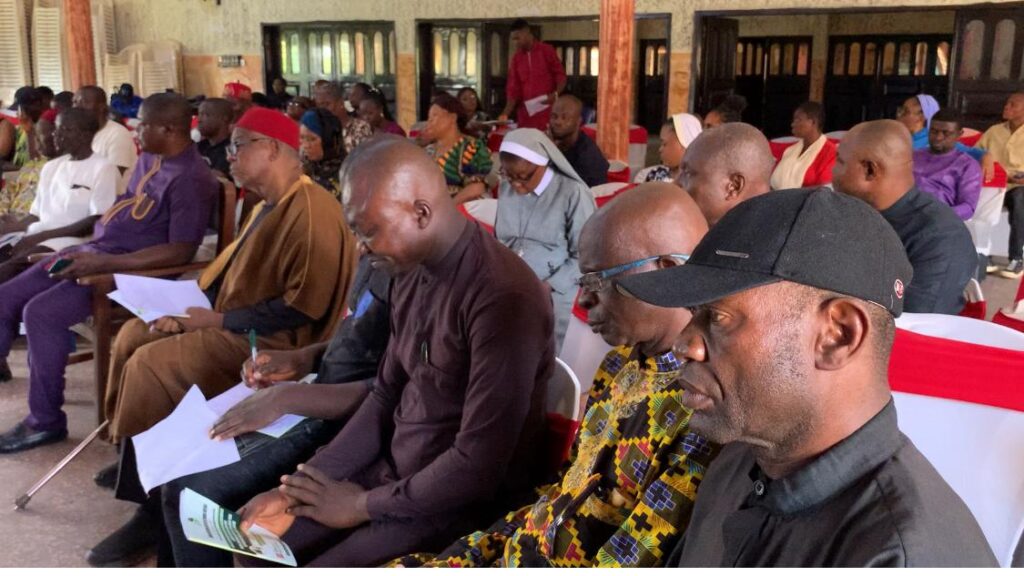
Traditional leaders followed, pledging to spearhead reforms in their communities and to adopt both the Memorandum of Understanding (MoU) and the Case Management System (CMS).
Religious leaders committed to embedding anti-exploitation messages in sermons and faith-based teachings.
Civil society groups emphasised the need for continuous community mobilisation and persistent policy advocacy.
Youth advocates concluded with strategies for engaging peers, sharing personal experiences of overcoming resistance within their communities.
Key observations
A communiqué issued after the event identified persistent drivers of child exploitation in Ebonyi, including economic hardship and parental complicity rooted in survival strategies.
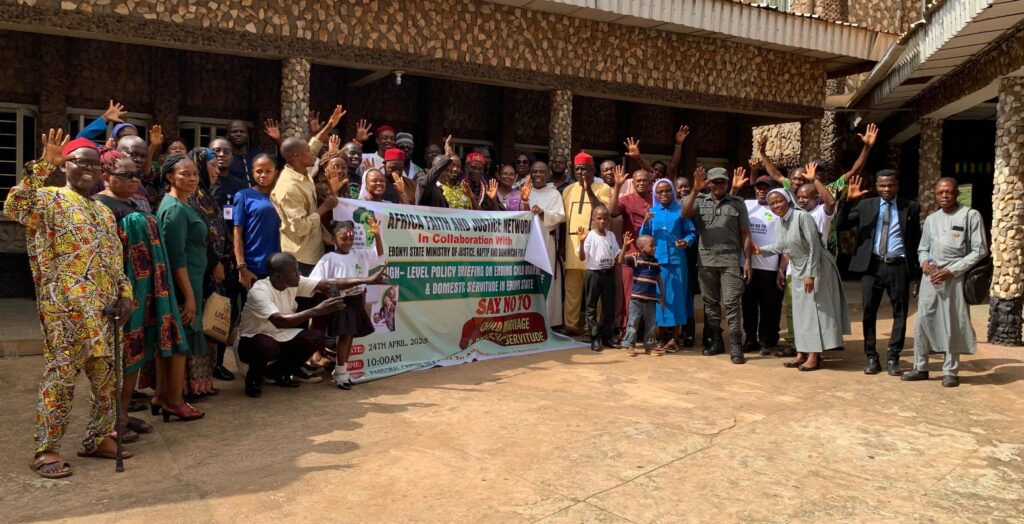
The forum pointed at weak enforcement of existing laws and lack of local-level child protection structures, which has led to a myriad of challenges facing the children.
They agreed that the limited inclusion of youth and women in decision-making has led to the problem.
Six-point commitment plan
The forum concluded with the adoption of a six-point action plan including a widespread Implementation of CMS and MoU by traditional and religious institutions.
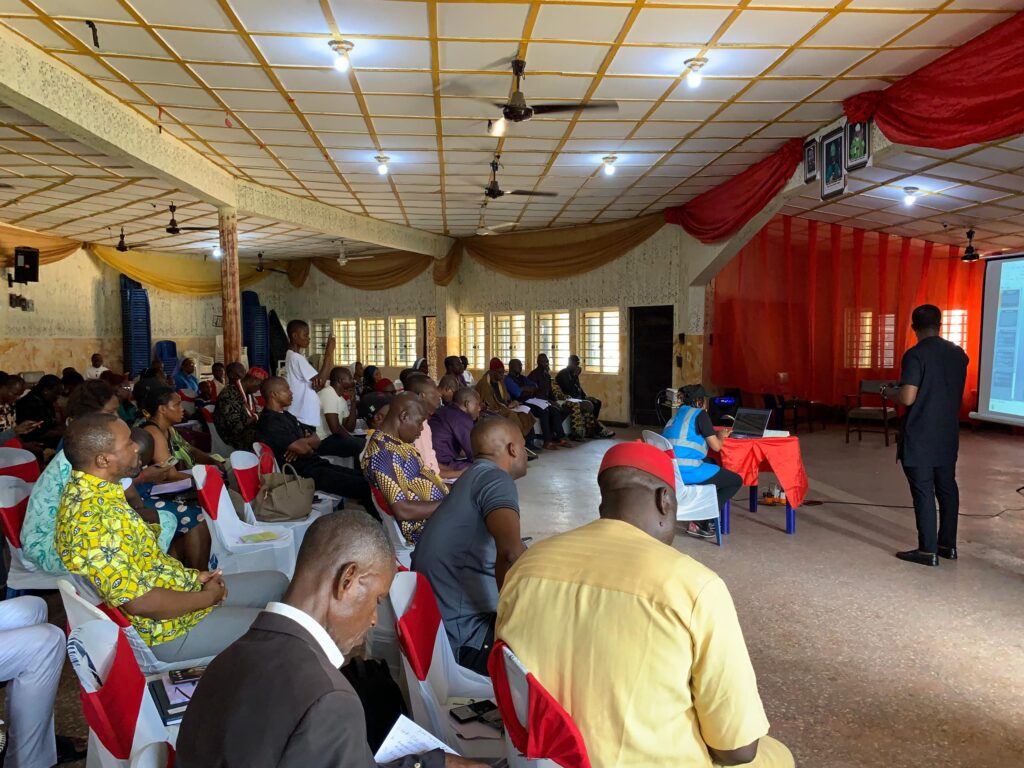
The coalition agreed to have Expanded Public Awareness Campaigns via schools, places of worship, and town halls and stronger Law Enforcement and accountability frameworks.
Also, they agreed to have Economic Empowerment Programs for vulnerable households, especially women.
They adopted Youth and Women Leadership Training to amplify community-level advocacy and sustained Engagement with State and National Actors to influence policy and public discourse.
The initiative received strong backing from AFJN officials based in Washington and Nigeria, as well as representatives from the UN, Ebonyi State ministries, the Christian Association of Nigeria, traditional councils, and youth-led networks.
“We must move beyond compassion to commitment — real, actionable change that protects our children and restores their dignity,” said Peter Ewah, Youth Advocate Coordinator.
Discover more from Asiwaju Media
Subscribe to get the latest posts sent to your email.
-

 NEWS6 days ago
NEWS6 days agoPastor Paul Enenche Rejects ₦30 Million Donation From Kebbi Government During Crusade
-
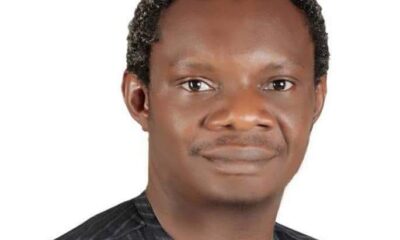
 POLITICS2 days ago
POLITICS2 days agoEbonyi Rep Member Threatens Constituent for Supporting Charity Foundation
-
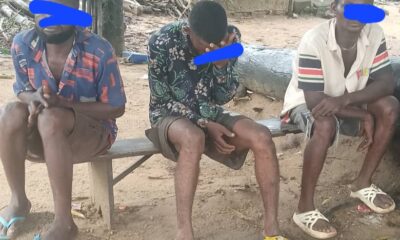
 NEWS2 days ago
NEWS2 days agoCable Vandals Nabbed by Nigerian Hunters in Okpuitumo, Handed Over to Police
-

 JOBS/SCHOLARSHIPS2 days ago
JOBS/SCHOLARSHIPS2 days agoCDCFIB Announces Nationwide Recruitment into Paramilitary Agencies
-

 POLITICS6 days ago
POLITICS6 days agoTight Security In Uyo As Tinubu Set To Attend Governor Umo Eno’s Grand Welcome Into APC
-
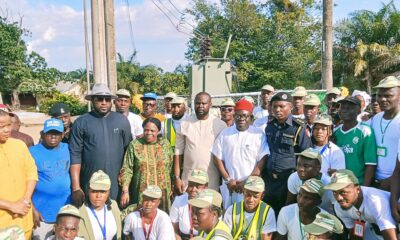
 INSIDE NYSC5 days ago
INSIDE NYSC5 days agoALGON Chairman Donates Transformer to NYSC Ebonyi Orientation Camp, Ends Years of Power Outage
-
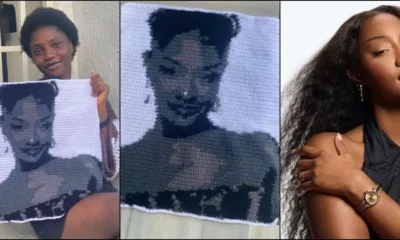
 ENTERTAINMENT13 hours ago
ENTERTAINMENT13 hours agoTems Gifts Fan ₦3 Million For Stunning Crochet Portrait
-

 NEWS6 days ago
NEWS6 days agoCall For Applications: Green Money Project for Nigerian Youth in Agribusiness 2025
-

 NEWS11 hours ago
NEWS11 hours agoIPOB Rejects Tinubu’s Proposed Cattle Ranches, Calls It Repackaged Ruga and Land Grab
-

 NEWS5 days ago
NEWS5 days agoArmed Herdsmen Attack Benue Community 48 Hours After Tinubu’s Visit
-
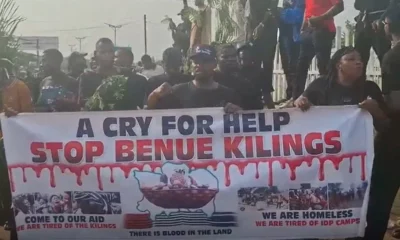
 NEWS5 days ago
NEWS5 days agoSPECIAL REPORT: Nigeria’s Slow Descent into Anarchy; Warnings Ignored, Blood Still Spills
-
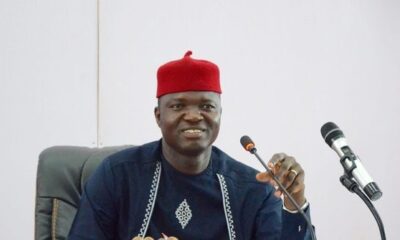
 CAMPUS REPORTS3 days ago
CAMPUS REPORTS3 days agoEbonyi’s Brain Trust: Time to Mobilize the Professors for Development

